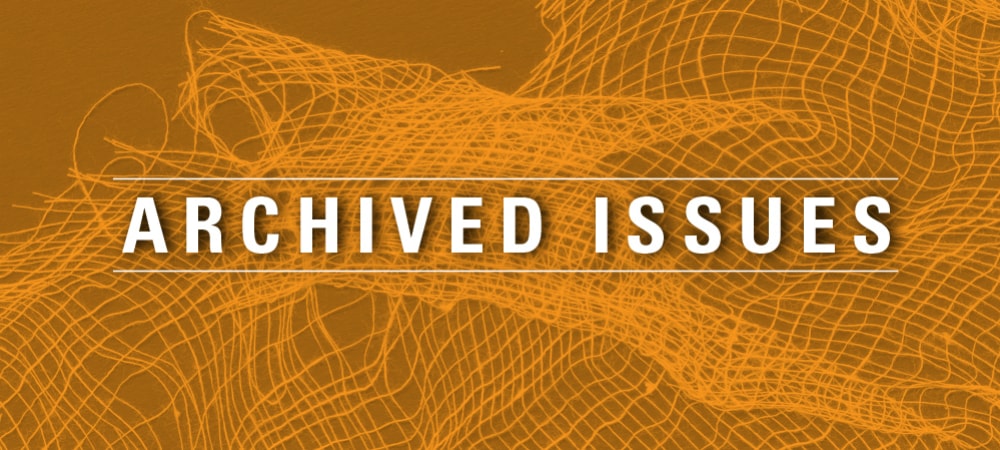We are pleased to present the 2018 issue of Perspectivas, the Journal of the Hispanic Theological Initiative. This issue contains unique approaches to Latinx theology and food, issues of migration and the crisis of migrant children on the border, and the crisis in Puerto Rico, from a variety of historical, theological and political perspectives.
In “Sancochando Theological Anthropology: One Puerto Rican Heavy Soup as Heuristic,” Héctor Varela-Rios, a Ph.D. candidate at the University of Chicago Divinity School, expounds on a real-world practice in Puerto Rican cuisine, “el sancocho,” as a comparative construct for doing theological anthropology. In this way, Varela-Rios argues for theology as a “cultural production.” Without casting a value judgment on either side of the equation – Puerto Rican culture or constructive theology – Varela-Rios posits that these two “conversation partners” – culture and theology – are indeed integral to “cooking” a theological anthropology. Thus, in this case, the elements of cooking in the Latinx context – specifically, a uniquely Puerto Rican dish – become a model for the practice of constructive theology, most appropriately so in the field of reflecting on a theology of humanity.
It is precisely in order to construct a humane theology that our second author, Linda Dakin-Grimm, an immigration lawyer in Los Angeles, who just completed a Master’s degree in Theology, approaches the current crises on the USA border in her essay, “US Christians Have Only One Response to the Suffering Migrant Children at the Border.” Based on actual experiences with immigrant children in her work on the border, Dakin-Grimm explores the theological bases for humane immigration policies and practices. Short of such policies, Christians and people of faith of all types are challenged to practice an ethics of resistance and disruption. Dakin-Grimm draws on the Hebrew Scriptures, patristic theology and such contemporary theologians as Leonardo Boff, Jon Sobrino and Jürgen Moltmann, as well as more recent work by Miguel De La Torre. This essay was completed before the most recent border crises with the separation of children from their families; so it is very much a prescient and cogent discussion of a theological basis for action from the perspective of a theologically trained lawyer and activist.
Another current event is foundational for the next set of essays in our issue, a special section of reflections on the recent crisis in Puerto Rico. Shortly after the disastrous pair of hurricanes, and exceedingly slow and inadequate response by both federal and insular governments, a forum on the situation in Puerto Rico was held at the Annual Meetings of the American Academy of Religion and Society of Biblical Literature in November 2017. Several Puerto Rican scholars from various historical and theological perspectives responded to the call for efforts to understand and explain how this could happen to Puerto Rico. Three of those presentations, one from biblical scholar Jean-Pierre Ruiz, one from ethicist Melissa Pagán and one from theologian Loida I. Martell are included in our issue. Each, with various levels of emphases, identify the historical issues inherent in the colonial situation of Puerto Rico, describe the aftermath of the deadly hurricanes and the weak infrastructure allowed to perturb the Island for so long, and explore biblical, theological and ethical resources in order to explain and energize responses to the immediate situation of devastation in the region.
Finally, among reviews of books by Latinx scholars about Puerto Rican theology, Christian vocation, “flesh theology,” Latin American church history and Mexican Pentecostalism, we offer an expanded book review “roundtable” of three reflections on Jacqueline Hidalgo’s important new work on the Book of Revelation and Latinx history and theology: Revelation in Aztlán: Scriptures, Utopias and the Chicano Movement. Professor Hidalgo, who teaches Religion and Latinx Studies at Williams College, explores how it is that we learn about the phenomena of “scripturalizing” – creating authoritative texts – from the interpretation history of the Christian book of Revelation but especially from a similarly “apocalyptic” and utopian text, El Plan Espiritual de Aztlán. The three reviews explore the contributions of Hidalgo’s book to the larger enterprise of biblical and religious studies, as well as understanding the role of religion and religious texts in Latinx and Chicanx cultures.
We hope you will enjoy engaging these important contributions to our ongoing work in Latinx religious and theological studies, and we congratulate our contributors for their very fine work.
– Efrain Agosto
Senior Editor



